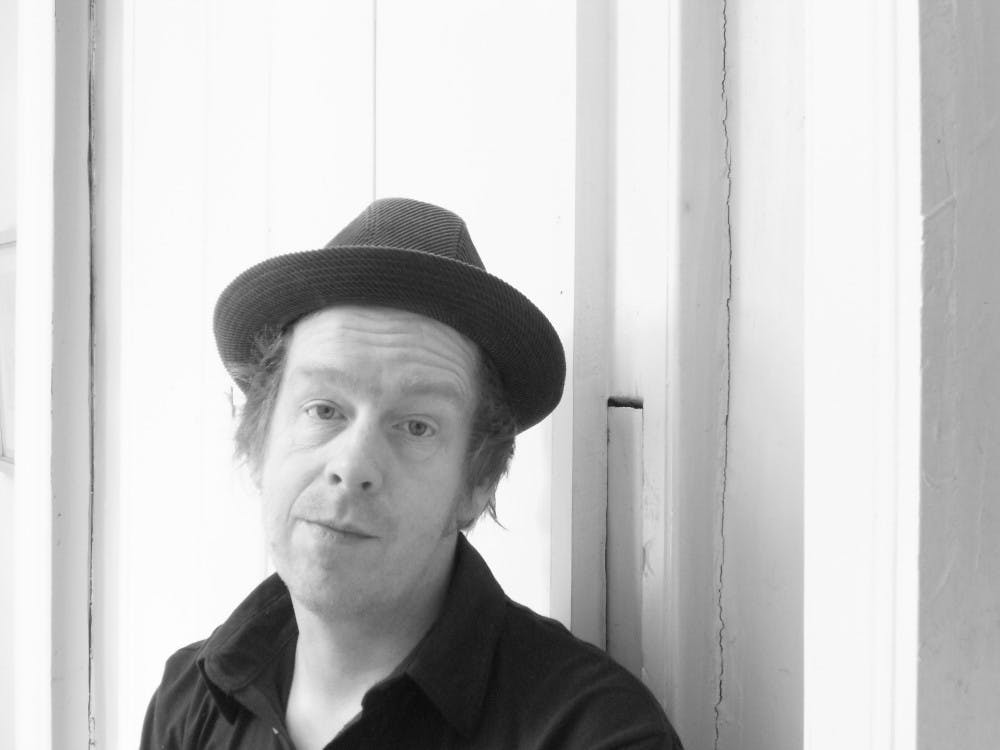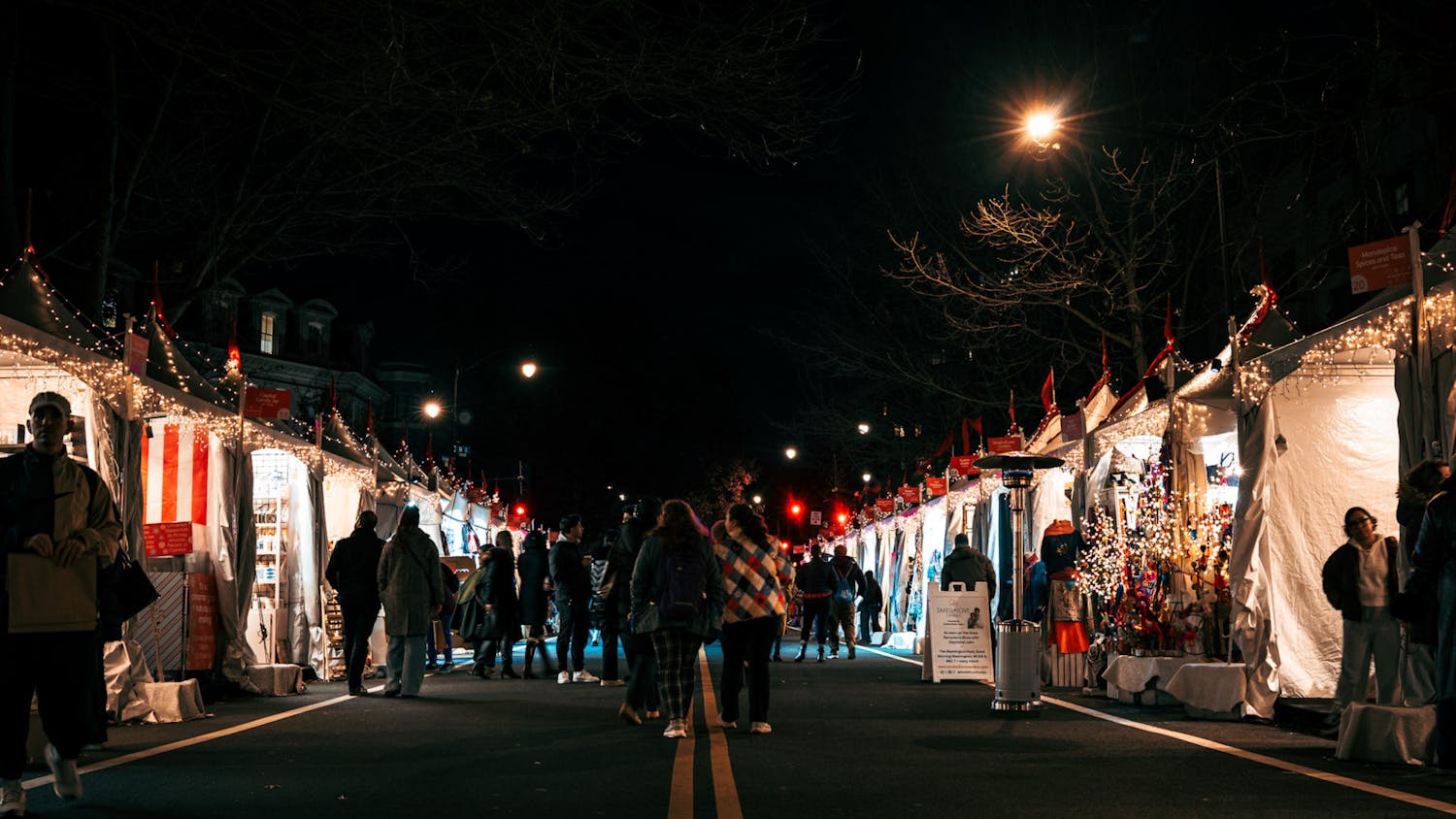Kevin Barry, author of “City of Bohane,” knows how to make polite conversation, but on page, his sentences have a pyrotechnic immediacy. Beginning in Limerick, Ireland, Barry was well traveled at a young age. He started writing as a freelance journalist —- taking the odd review here and there in his 20s —- before settling down and writing short stories. In his second collection “Dark Lies the Island,” the story “Beer Trip to Llandudno” won the Sunday Times Short Story Award.
Currently, his novel “City of Bohane” is out, having accrued multiple literary awards and graced the cover of the New York Times Book Review. Barry took some time to chat with The Eagle’s David Kahen-Kashi about the novel and some of his reading habits.
Eagle: When did you realize you wanted to start writing?
Kevin Barry: In my 20s I was working as a freelance journalist. I was doing lots of journalism. Lot’s of reviews and arts stuff, but I kind of knew I wasn’t using a part of my brain that I wanted to use. Which is that murky subconscious place at the back of the mind, which is where fiction comes from. So I got serious about it. I’d always been writing fiction at some level, but I only really got serious in my late 20s I think. What I realized is that you can’t do this stuff on the side, it has to be your main thing. I finally got a little bit disciplined when I was into my late 20s.
Previously I would write stories but in a very haphazard way and writing them kind of late at night, after falling in the door from a nightclub. It takes awhile to learn the discipline and that the old cliche is true and so much of it is perspiration as much as inspiration.
E: What were those early stories like? Was it hard to get into writing fiction?
KB: I think it comes with a lot of very young writers, I was trying to sound like my favorite writers for a long time. That’s a stage everybody goes through. In my 20s I used to love Saul Bellow and Philip Roth, those great American Jewish writers, and I was trying to mimic or imitate that. You realize after a while, you’ve got to find your own approach and your own perceptions. I think the trick is like books are made out of books and writers are made out of what they read. If you read broadly and widely, maybe lots of different sources will come in and affect the work. It’s not just books though, I’m really influenced by TV, drama and by film. By music. By art. By everything that I soak up as I go about my day. You’re trying to have all the receptors open and take in as many influences as you can, I think.
E: Do you read during the writing process or do you shut that out?
KB: I do. I mean I’m always wary, and it is true of the real kinds of stylists, if you’re reading someone really strong with a really pronounced style and you really like it. It’s going to come into your work. If you’re reading James Ellroy or you’re reading Cormac McCarthy, you find yourself [using] those sentences a little. It is important to be careful and be watchful of that. But I read all the time, I don’t finish much, I have a terrible habit of starting lots of books and I probably only finish a dozen or so a year. I always have 20 books by the side of the bed that I’m dipping in and out of. And it’s really interesting, I think a lot of us do our reading now that way. There’s so much stuff out there. So much great stuff around, it’s hard to get through it all.
E: What was the transition between writing short stories and preparing to take on a novel like “City of Bohane?”
KB: In some ways, I think writing a novel is a slightly more relaxed exercise than writing short stories. Short stories are very…they can go wrong on you very easily and they fall off the desk and crack their necks on the floor. Every sentence is doing something in a short story and you can afford to be a little bit looser in a novel. In a way it can be fun, I think, because you can go off on weird tangents and that can be awfully good in a novel. “City of Bohane,” the original idea was I wanted to build my own little city. On the western seaboard of Ireland and just try to invent my own rules and my own language for it. I would say primary among its influences were some of the great TV shows I was watching like “Deadwood” or “The Wire;” shows that depict a city from top to bottom. It’s kind of built out of actual Irish speech and actual Irish ways of expression.
E: What’s going on now? Are you working on something new?
KB: Yeah, there are a couple of things competing for my attention on the desk. There’s a new novel which I have under top secret. I say nothing about it ‘till it’s finished. I think it’s a few months away from being finished. There’s also a screenplay for a movie about horse racing called “The Chee Chee’s” and that’s moved quite a long way along the development process. It’s about an Irish jockey and his dad, who’s a horse trainer. Again, it’s kind of a dark comedy. It’s kind of fun to flip between the two. If you get very weary on one, you can move on to something else for a few days or few weeks and it kind of refreshes you.
See Kevin Barry at the Warehouse Theatre on Nov. 20 at 7 p.m.





